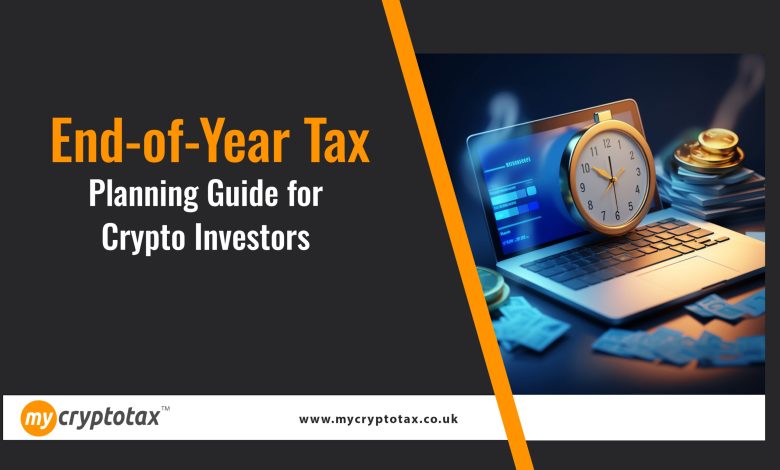How to Plan for Tax Implications of Crypto Investments

- Understanding the tax implications of cryptocurrency investments
- Key factors to consider when planning for taxes on crypto investments
- Strategies for minimizing tax liabilities on your cryptocurrency holdings
- Navigating the complex world of crypto taxes: Tips for investors
- Tax planning considerations for both short-term and long-term crypto investments
- Working with a tax professional to ensure compliance with cryptocurrency tax laws
Understanding the tax implications of cryptocurrency investments
When it comes to understanding the tax implications of cryptocurrency investments, it is crucial to be aware of the regulations surrounding this emerging asset class. Cryptocurrency transactions are subject to taxation in many countries, and it is essential to comply with the tax laws to avoid any legal issues.
One key aspect to consider is the classification of cryptocurrencies for tax purposes. In some jurisdictions, they are treated as property, while in others, they may be considered securities or commodities. Understanding how cryptocurrencies are categorized in your country can help you plan for the tax implications accordingly.
Additionally, it is important to keep accurate records of all your cryptocurrency transactions. This includes buying, selling, and trading cryptocurrencies. Having detailed records will not only help you calculate your tax liability accurately but also provide evidence in case of an audit.
Moreover, it is advisable to consult with a tax professional who is knowledgeable about cryptocurrency taxation. They can provide guidance on how to optimize your tax strategy and minimize your tax burden legally. By working with an expert, you can ensure that you are compliant with the tax laws while maximizing your investment returns.
Key factors to consider when planning for taxes on crypto investments
When planning for taxes on crypto investments, there are several key factors to consider to ensure compliance with tax laws and regulations. It is important to keep track of all transactions involving cryptocurrencies, including purchases, sales, trades, and mining activities. This information will be crucial for accurately reporting capital gains or losses on your tax return.
Another important factor to consider is the holding period of your crypto investments. Short-term capital gains are taxed at a higher rate than long-term capital gains, so it is essential to know how long you have held each asset before selling it. Additionally, you should be aware of any tax deductions or credits that may be available for crypto investments, such as the ability to offset capital gains with capital losses.
Furthermore, it is important to stay informed about any changes to tax laws and regulations regarding cryptocurrencies. The IRS has been increasing its focus on crypto tax compliance in recent years, so it is crucial to stay up to date on any new guidance or requirements. Seeking the advice of a tax professional who is knowledgeable about crypto investments can also help ensure that you are meeting all of your tax obligations.
Strategies for minimizing tax liabilities on your cryptocurrency holdings
When it comes to minimizing tax liabilities on your cryptocurrency holdings, there are several strategies you can employ to ensure you are compliant with tax regulations while maximizing your profits. Here are some tips to help you manage your tax obligations effectively:
- Keep detailed records: It is crucial to maintain accurate records of all your crypto transactions, including buys, sells, and trades. This will help you calculate your capital gains and losses correctly.
- Utilize tax software: Consider using tax software specifically designed for cryptocurrency investors. These tools can automate the tax reporting process and ensure you are compliant with tax laws.
- Take advantage of tax deductions: Be aware of any tax deductions you may be eligible for, such as transaction fees or crypto donations. Claiming these deductions can reduce your taxable income.
- Consider tax-loss harvesting: If you have investments that have decreased in value, you can sell them to offset any capital gains and reduce your tax liability.
- Consult with a tax professional: If you are unsure about how to handle your crypto taxes, it is recommended to seek the advice of a tax professional who specializes in cryptocurrency.
By implementing these strategies, you can minimize your tax liabilities and ensure that you are compliant with tax laws when managing your crypto investments.
Navigating the complex world of crypto taxes: Tips for investors
Navigating the intricate world of cryptocurrency taxes can be a daunting task for investors. However, with the right knowledge and preparation, you can ensure that you are compliant with tax regulations while maximizing your investment returns. Here are some tips to help you navigate the complex world of crypto taxes:
- Keep detailed records of all your cryptocurrency transactions, including purchases, sales, trades, and mining activities. This will help you accurately calculate your gains and losses for tax purposes.
- Understand the difference between short-term and long-term capital gains, as they are taxed at different rates. Holding onto your investments for over a year can qualify you for lower tax rates.
- Consider using cryptocurrency tax software to automate the process of calculating your taxes. These tools can help you save time and ensure accuracy in your tax reporting.
- Consult with a tax professional who has experience with cryptocurrency investments. They can provide valuable guidance on how to minimize your tax liability and stay compliant with tax laws.
- Be aware of the tax implications of using cryptocurrency for everyday transactions. In some cases, you may be required to report these transactions and pay taxes on any gains.
By following these tips and staying informed about the latest developments in cryptocurrency tax regulations, you can navigate the complex world of crypto taxes with confidence and peace of mind. Remember that staying compliant with tax laws is essential for protecting your investments and avoiding potential penalties in the future.
Tax planning considerations for both short-term and long-term crypto investments
When it comes to tax planning for crypto investments, it is crucial to consider both short-term and long-term implications. For short-term investments, capital gains tax is typically the main concern. Depending on your tax bracket, you may be subject to different tax rates on your gains. It is important to keep track of your buy and sell dates to accurately calculate your capital gains.
On the other hand, long-term crypto investments are subject to different tax rates. If you hold your crypto assets for over a year before selling, you may qualify for lower long-term capital gains tax rates. This can result in significant tax savings compared to short-term investments.
Another important consideration for both short-term and long-term crypto investments is the impact of losses on your taxes. If you experience losses on your crypto holdings, you may be able to offset those losses against your gains to reduce your overall tax liability.
Working with a tax professional to ensure compliance with cryptocurrency tax laws
Collaborating with a tax professional is crucial when navigating the complex landscape of cryptocurrency tax laws. A knowledgeable tax advisor can provide valuable guidance on how to accurately report your crypto investments and ensure compliance with tax regulations.
By working with a tax professional, you can stay informed about the latest updates and changes in cryptocurrency tax laws. They can help you understand the tax implications of your crypto transactions, including buying, selling, and trading digital assets.
Furthermore, a tax professional can assist you in maximizing tax deductions and credits related to your cryptocurrency investments. They can help you identify opportunities to minimize your tax liability while staying within the boundaries of the law.
Overall, partnering with a tax professional can give you peace of mind knowing that your crypto investments are being handled in a tax-efficient manner. Their expertise can help you avoid potential pitfalls and ensure that you are meeting all your tax obligations when it comes to your cryptocurrency holdings.



